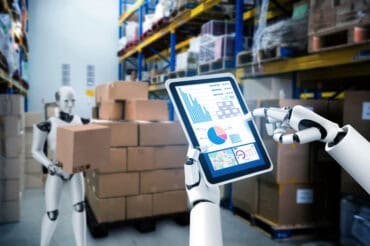
New offerings in the European AI toolkit project aim to facilitate innovation and research into artificial intelligence.
Europe’s quest to establish a central European AI toolkit continues with the announcement of six new projects for the EU’s AI-on-demand platform, AI4EU.
The EU hopes to facilitate innovation and research into critical areas of artificial intelligence. The projects will engage a much wider audience than the typical key players and help industries adopt AI more quickly.
See also: Many Artificial Intelligence Initiatives Included in the NDAA
The chosen projects further AI-on-demand
The projects will develop the service layer of AI as well as enable a larger community to benefit from AI’s full potential. New offerings include:
- AI4Copernicus — Building up the AI4EU platform service through datasets, tools, and services. Use cases impact sectors with high economic and societal needs (think agriculture or security.)
- AIPlanforEU — Enhancing the platform by improving platform consistency and outlining guidelines for those users.
- BonsApps — Developing AI-as-a-Service, providing experimentation, benchmarking, and deployment, as well as offering secure licensing of AI solutions.
- DIH4AI — Building networks of regional AI-on-demand platforms through Digital Innovation Hubs targeting local governmental tech agencies and SMEs.
- I-ENERGY — Developing AI-based energy services (AI-on-demand) through the Internet of Things and state-of-the-art AI.
- StairwAI — Facilitating engagement of low-tech users through multilingual interaction and two matchmaking services for AI needs.
The commission invested 30 million euros into these six projects, hoping to launch the next phase of its overall goal, the AI toolkit. The point is to establish the European Union as an AI leader in innovation.
Where is the AI toolkit project heading?
This leadership could translate into economic boosts and essential social initiatives for countries post-recession, post-disruption, post-pandemic.
The six projects met in December for a kickoff in December 2020. The meeting launched essential collaboration and brainstorming, opening the doors for future collaborative efforts. The project began in 2019 and has moved forward as Europe continues to pursue full AI adoption ahead of the rest of the world.
So, will the project launch Europe’s leadership role in the future of AI? These new projects are doing their part to make sure that happens.






























